第117章
These campaigns begin in July, and last throughout the dry months; the women generally accompanying the warriors to carry their arrows and javelins.They had the diabolical custom, in former days, of cutting off the heads of their slain enemies, and preserving them as trophies around their houses.I believe this, together with other savage practices, has been relinquished in those parts where they have had long intercourse with the Brazilians, for I could neither see nor hear anything of these preserved heads.They used to sever the head with knives made of broad bamboo, and then, after taking out the brain and fleshy parts, soak it in bitter vegetable oil (andiroba), and expose it for several days over the smoke of a fire or in the sun.In the tract of country between the Tapajos and the Madeira, a deadly war has been for many years carried on between the Mundurucus and the Araras.I was told by a Frenchman at Santarem, who had visited that part, that all the settlements there have a military organisation.A separate shed is built outside each village, where the fighting men sleep at night, sentinels being stationed to give the alarm with blasts of the Ture on the approach of the Araras, who choose the night for their onslaughts.
Each horde of Mundurucus has its paje or medicine man, who is the priest and doctor; he fixes upon the time most propitious for attacking the enemy; exorcises evil spirits, and professes to cure the sick.All illness whose origin is not very apparent is supposed to be caused by a worm in the part affected.This the paje pretends to extract; he blows on the seat of pain the smoke from a large cigar, made with an air of great mystery by rolling tobacco in folds of Tauari, and then sucks the place, drawing from his mouth, when he has finished, what he pretends to be the worm.It is a piece of very clumsy conjuring.One of these pajes was sent for by a woman in John Aracu's family, to operate on a child who suffered much from pains in the head.Senor John contrived to get possession of the supposed worm after the trick was performed in our presence, and it turned out to be a long white airroot of some plant.The paje was with difficulty persuaded to operate while Senor John and I were present.Icannot help thinking that he, as well as all others of the same profession, are conscious impostors, handing down the shallow secret of their divinations and tricks from generation to generation.The institution seems to be common to all tribes of Indians, and to be held to more tenaciously than any other.
I bought of the Tushaua two beautiful feather sceptres, with their bamboo cases.These are of cylindrical shape, about three feet in length and three inches in diameter, and are made by gluing with wax the fine white and yellow feathers from the breast of the toucan on stout rods, the tops being ornamented with long plumes from the tails of parrots, trogons, and other birds.The Mundurucus are considered to be the most expert workers in feathers of all the South American tribes.It is very difficult, however, to get them to part with the articles, as they seem to have a sort of superstitious regard for them.They manufacture headdresses, sashes, and tunics, besides sceptres;the feathers being assorted with a good eye to the proper contrast of colours, and the quills worked into strong cotton webs, woven with knitting sticks in the required shape.The dresses are worn only during their festivals, which are celebrated, not at stated times, but whenever the Tushaua thinks fit.Dancing, singing, sports, and drinking, appear to be the sole objects of these occasional holidays.When a day is fixed upon, the women prepare a great quantity of taroba, and the monotonous jingle is kept up, with little intermission, night and day, until the stimulating beverage is finished.
We left the Tushaua's house early the next morning.The impression made upon me by the glimpse of Indian life in its natural state obtained here, and at another cluster of houses visited higher up, was a pleasant one, notwithstanding the disagreeable incident of the Pararauate visit.The Indians are here seen to the best advantage; having relinquished many of their most barbarous practices, without being corrupted by too close contact with the inferior whites and half-breeds of the civilised settlements.The manners are simpler, the demeanour more gentle, cheerful, and frank, than amongst the Indians who live near the towns.I could not help contrasting their well-fed condition, and the signs of orderly, industrious habits, with the poverty and laziness of the semi-civilised people of Altar do Chao.I do not think that the introduction of liquors has been the cause of much harm to the Brazilian Indian.He has his drinking bout now and then, like the common working people of other countries.It was his habit in his original state, before Europeans visited his country, but he is always ashamed of it afterwards, and remains sober during the pretty long intervals.
The harsh, slave-driving practices of the Portuguese and their descendants have been the greatest curses to the Indians; the Mundurucus of the Cupari, however, have been now for many years protected against ill-treatment.This is one of the good services rendered by the missionaries, who take care that the Brazilian laws in favour of the aborigines shall be respected by the brutal and unprincipled traders who go amongst them.I think no Indians could be in a happier position than these simple, peaceful, and friendly people on the banks of the Cupari.The members of each family live together, and seem to be much attached to each other;and the authority of the chief is exercised in the mildest manner.Perpetual summer reigns around them; the land is of the highest fertility, and a moderate amount of light work produces them all the necessessities of their simple life.